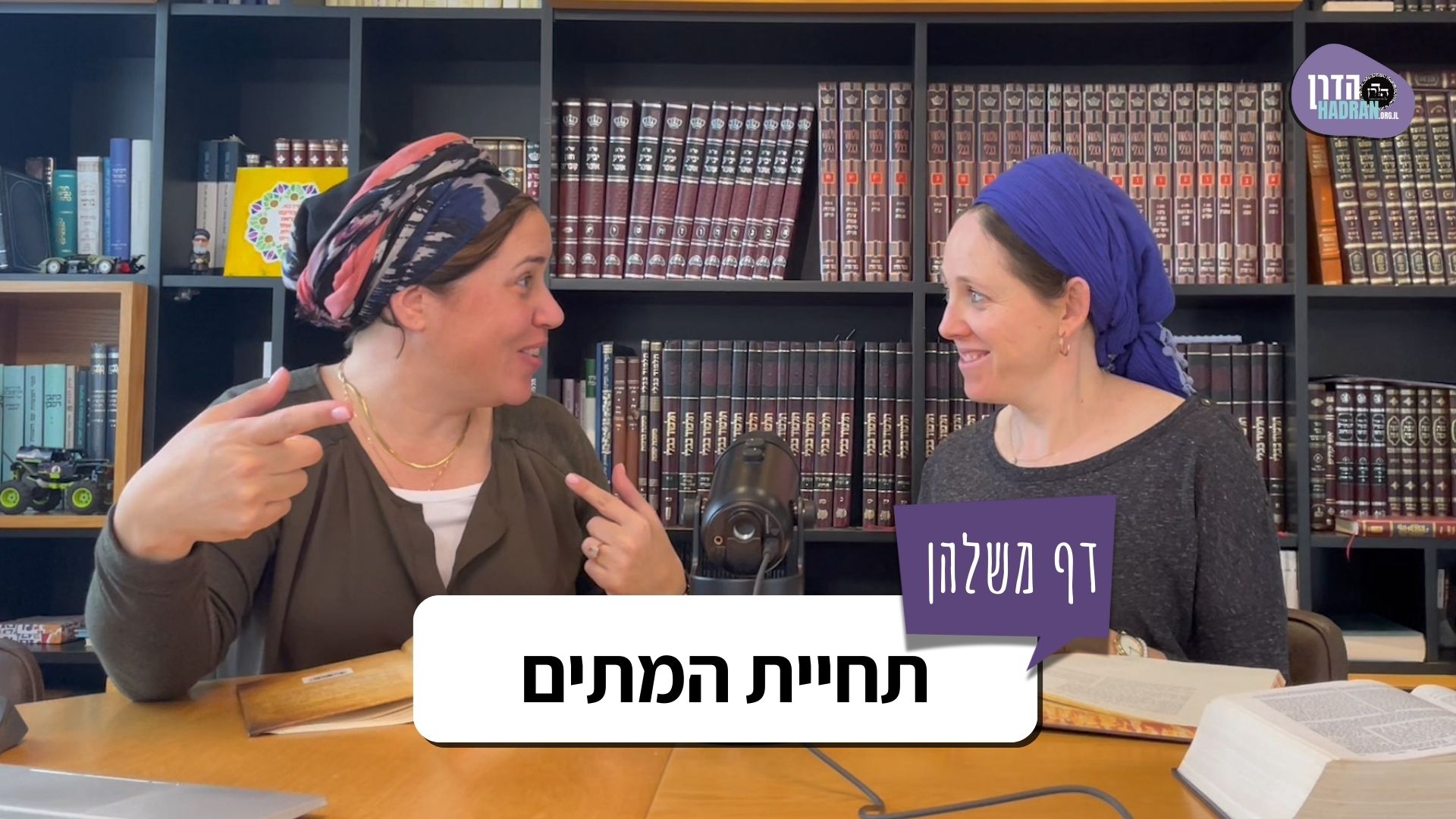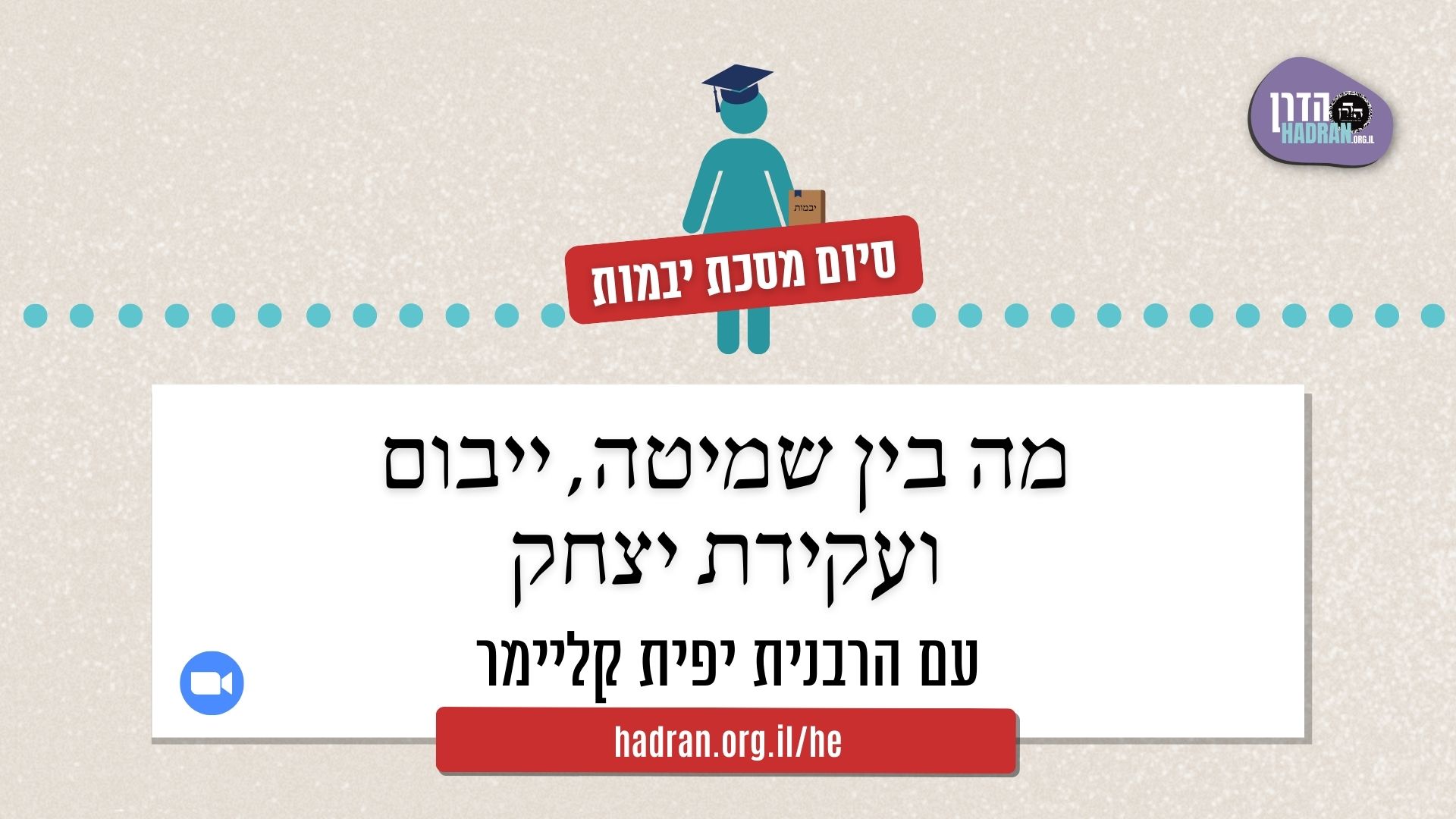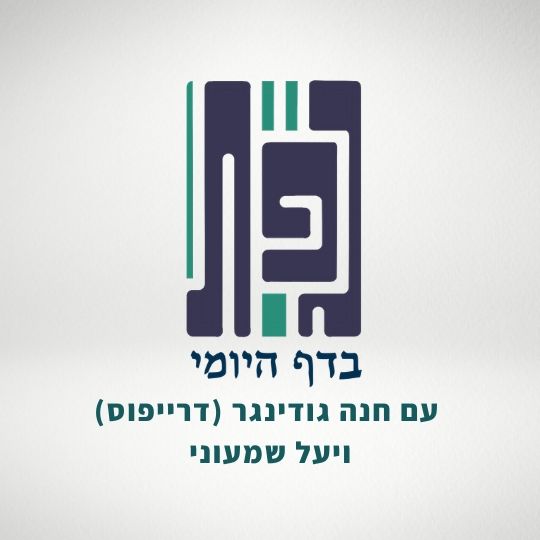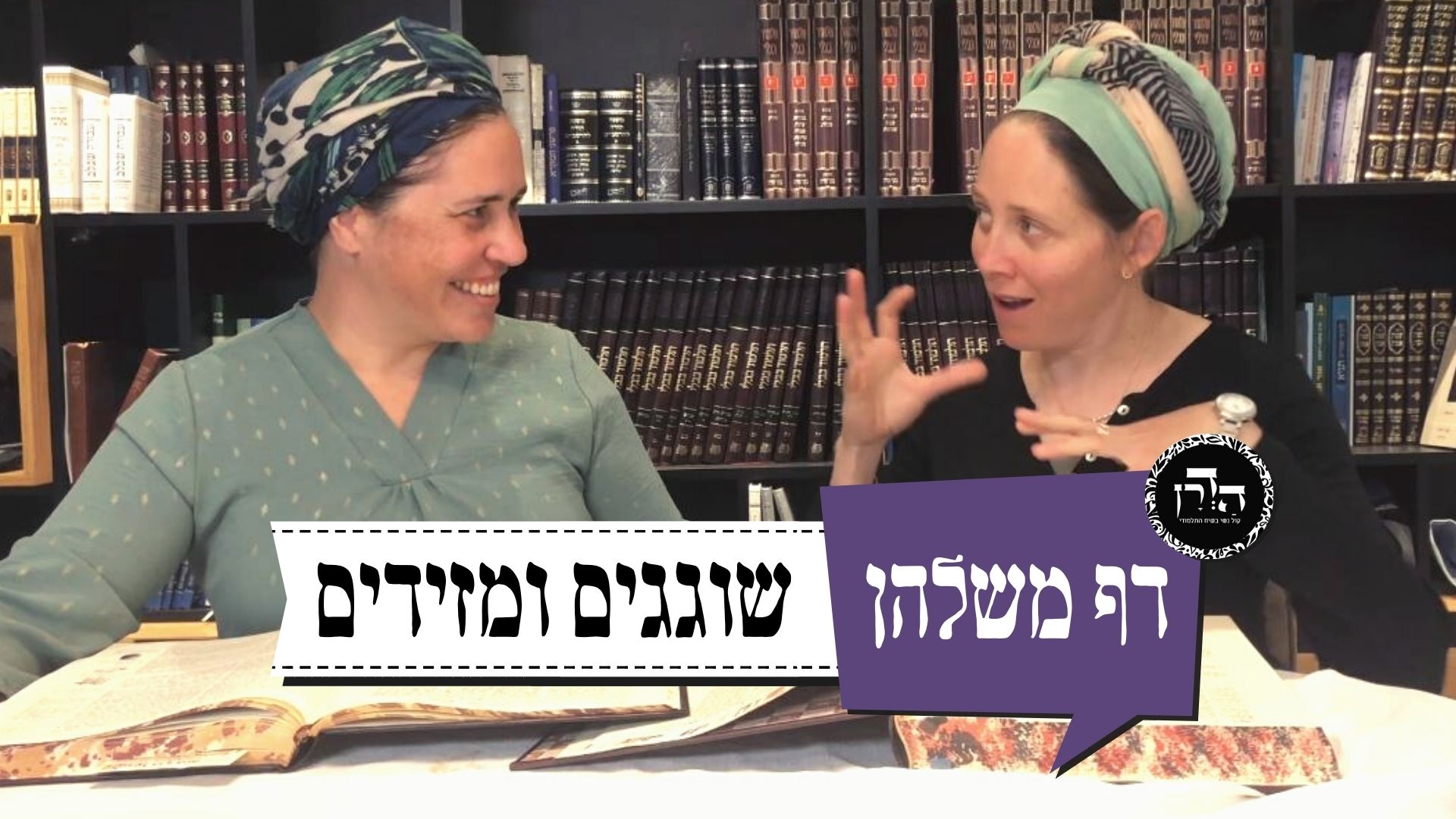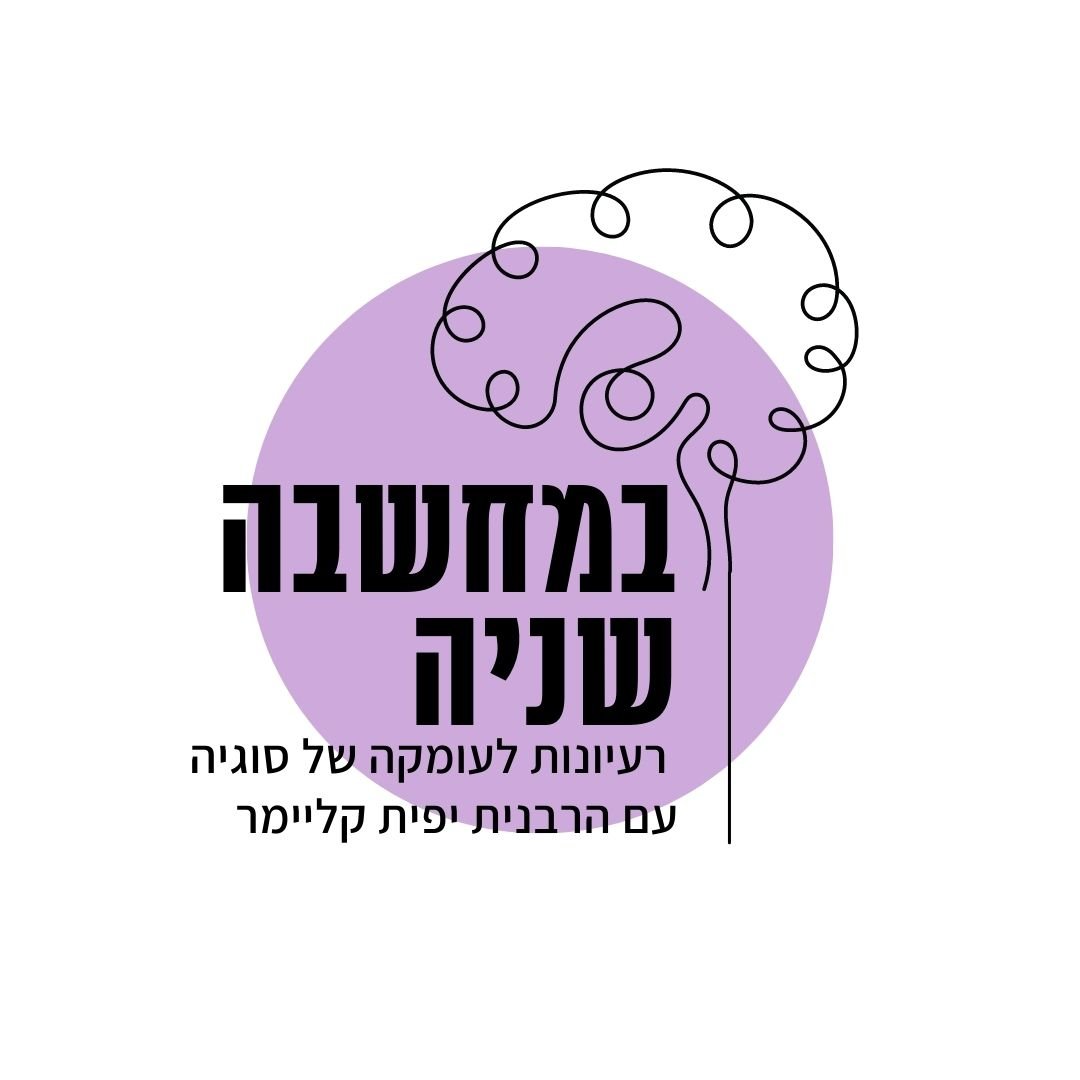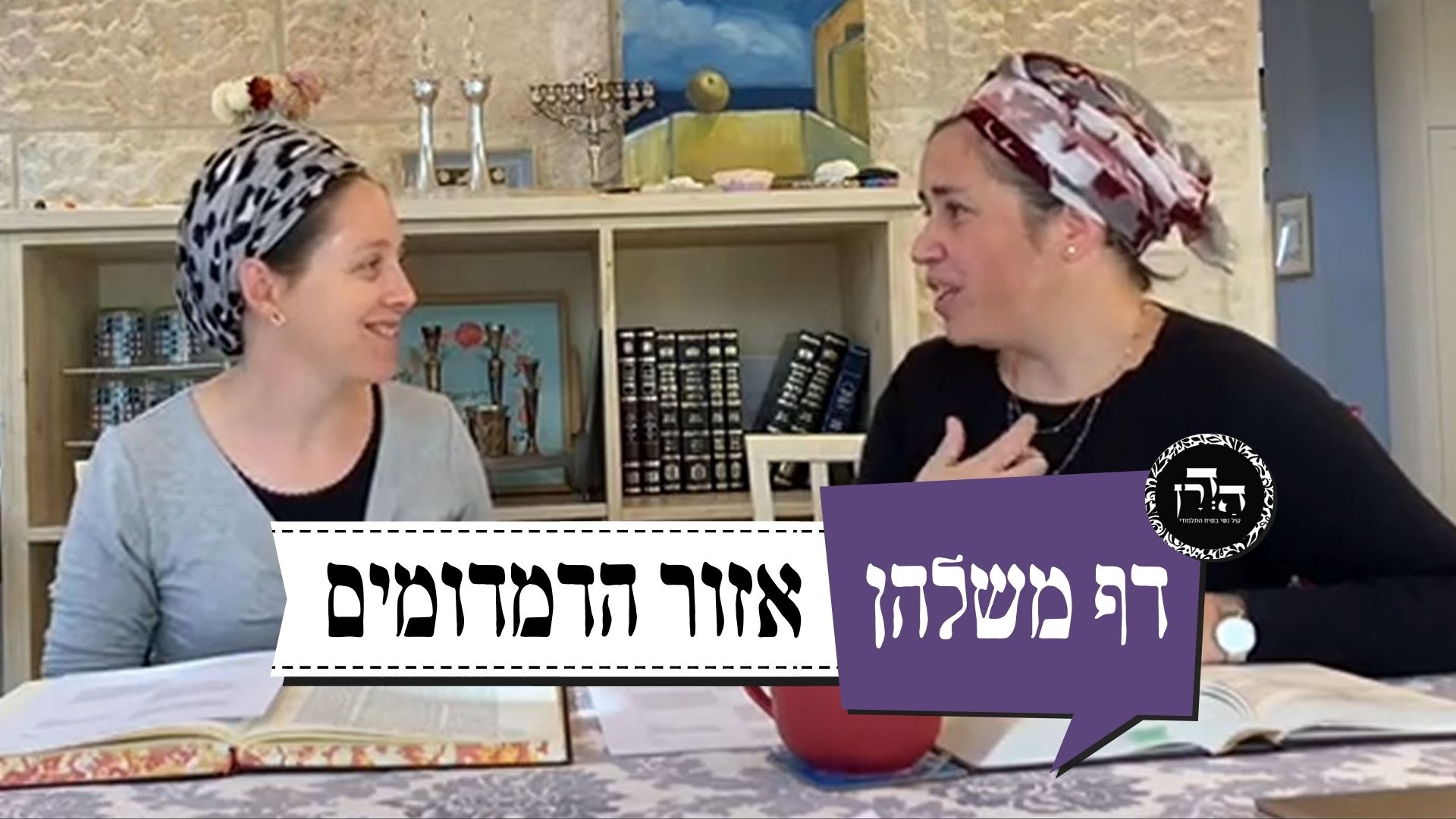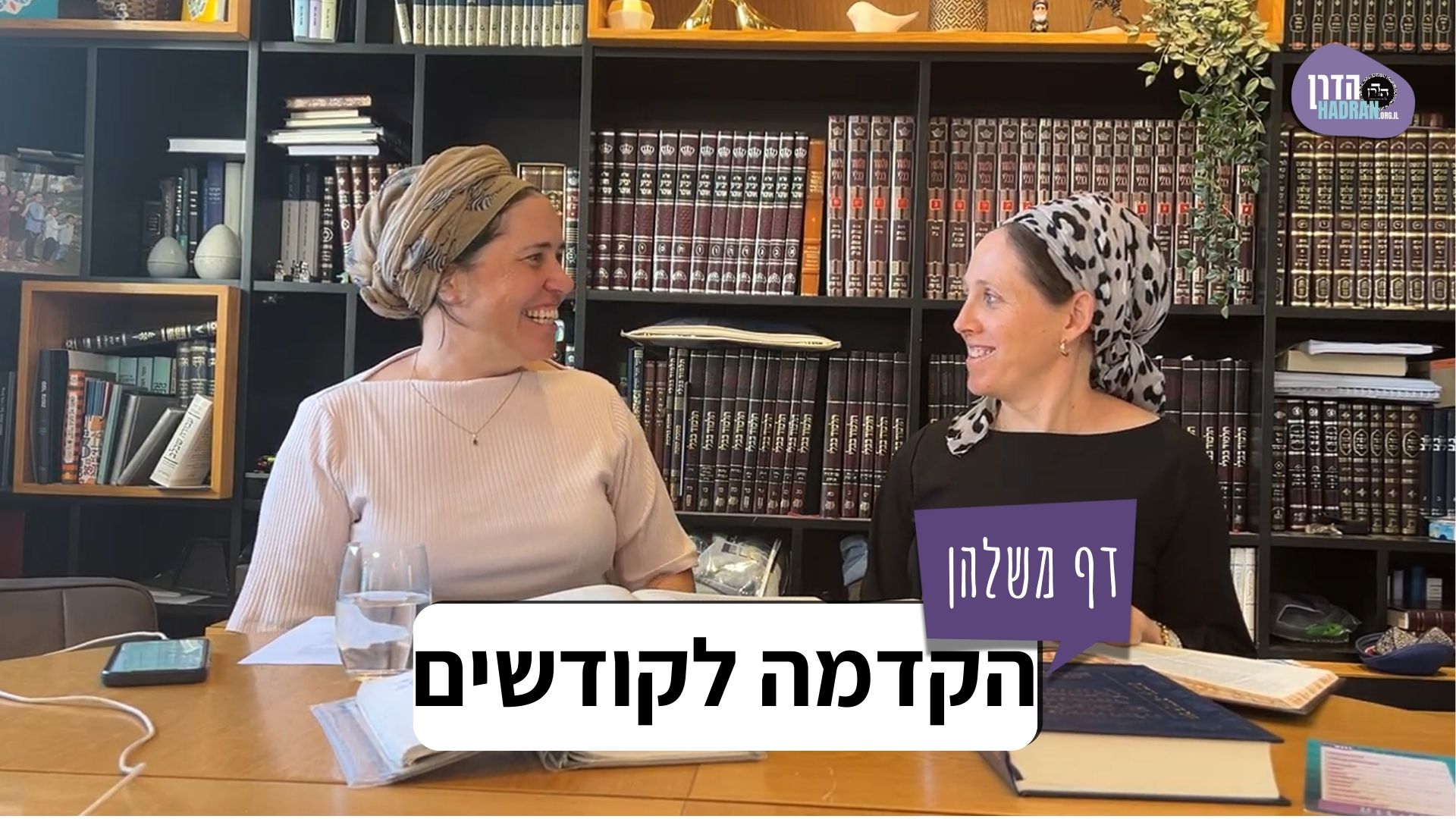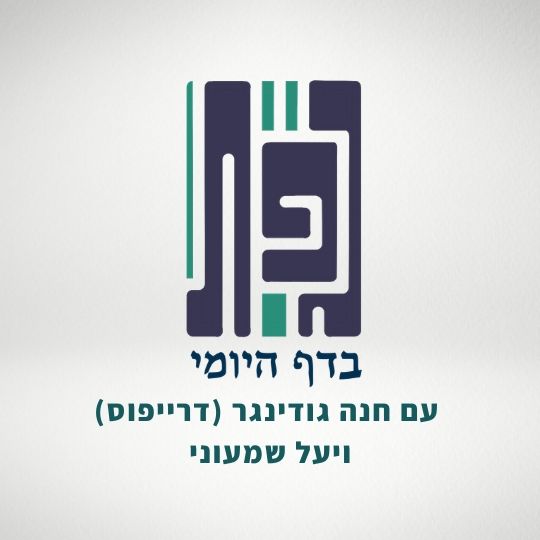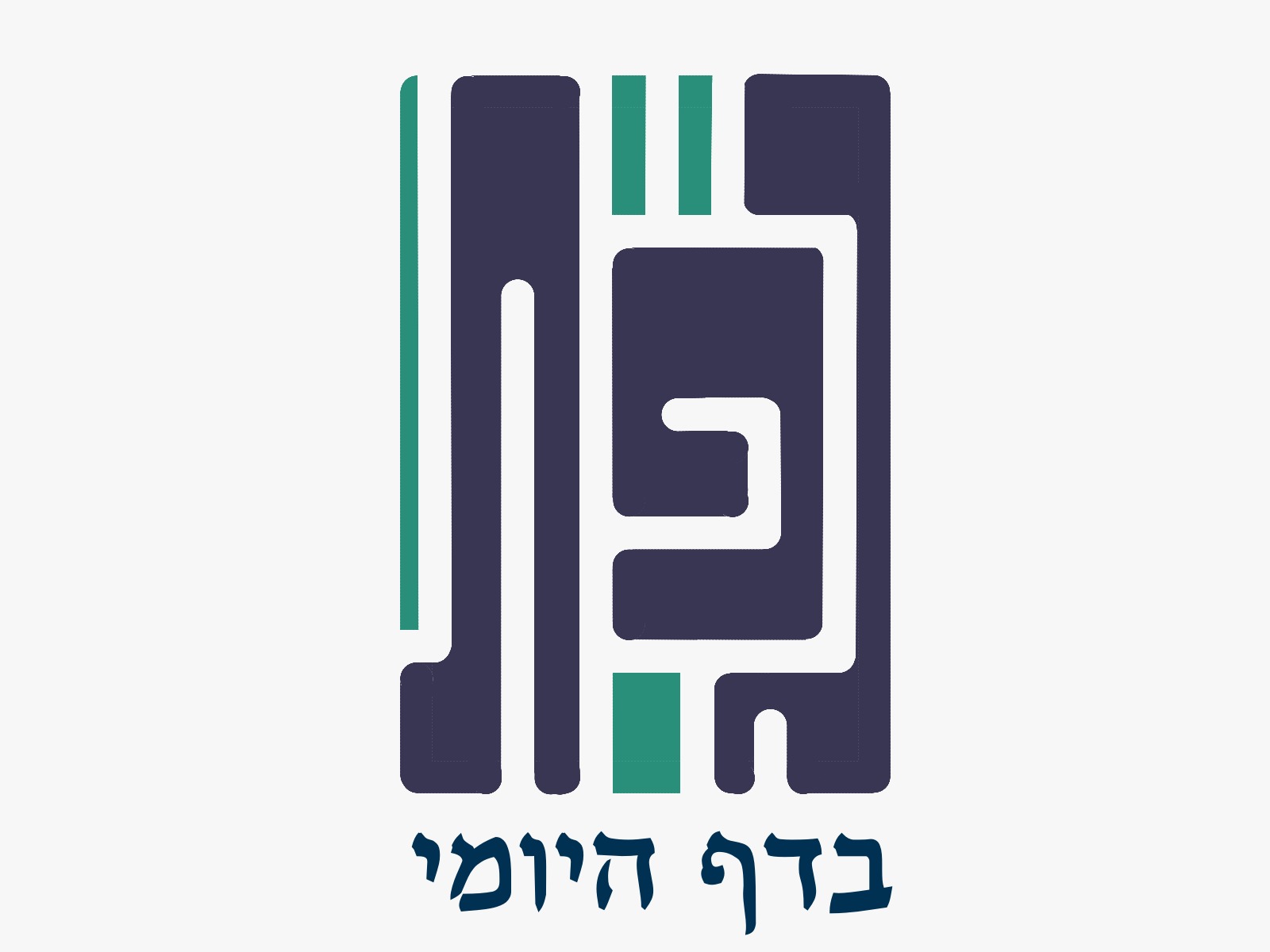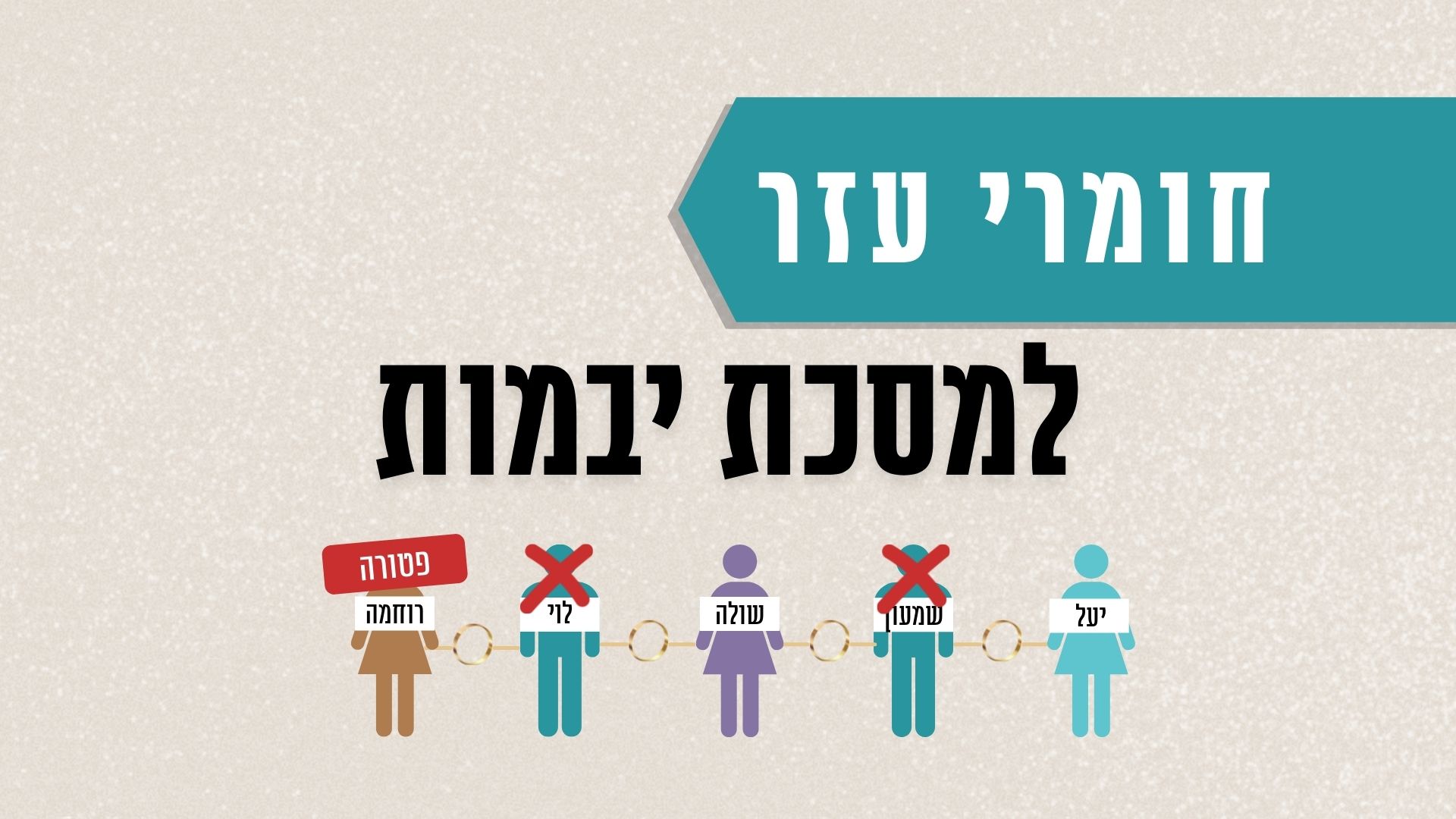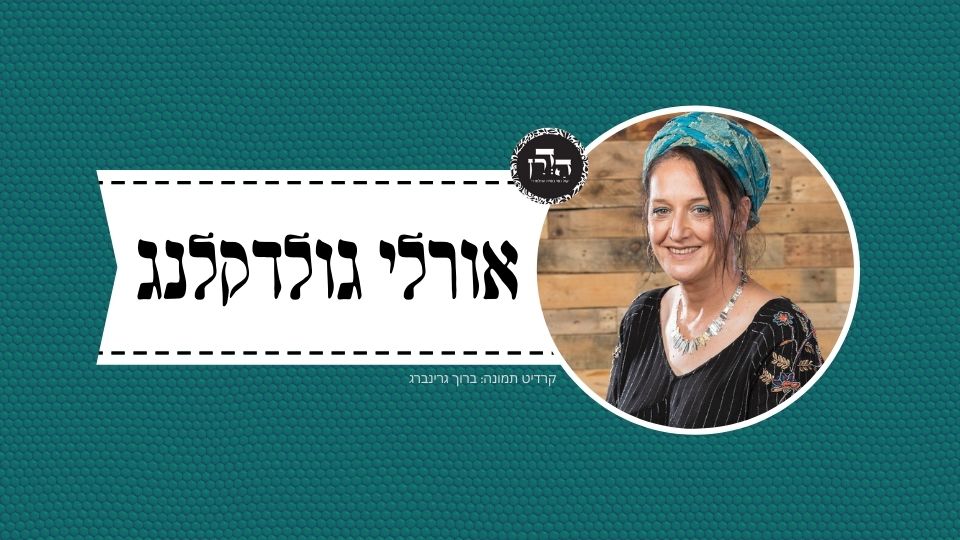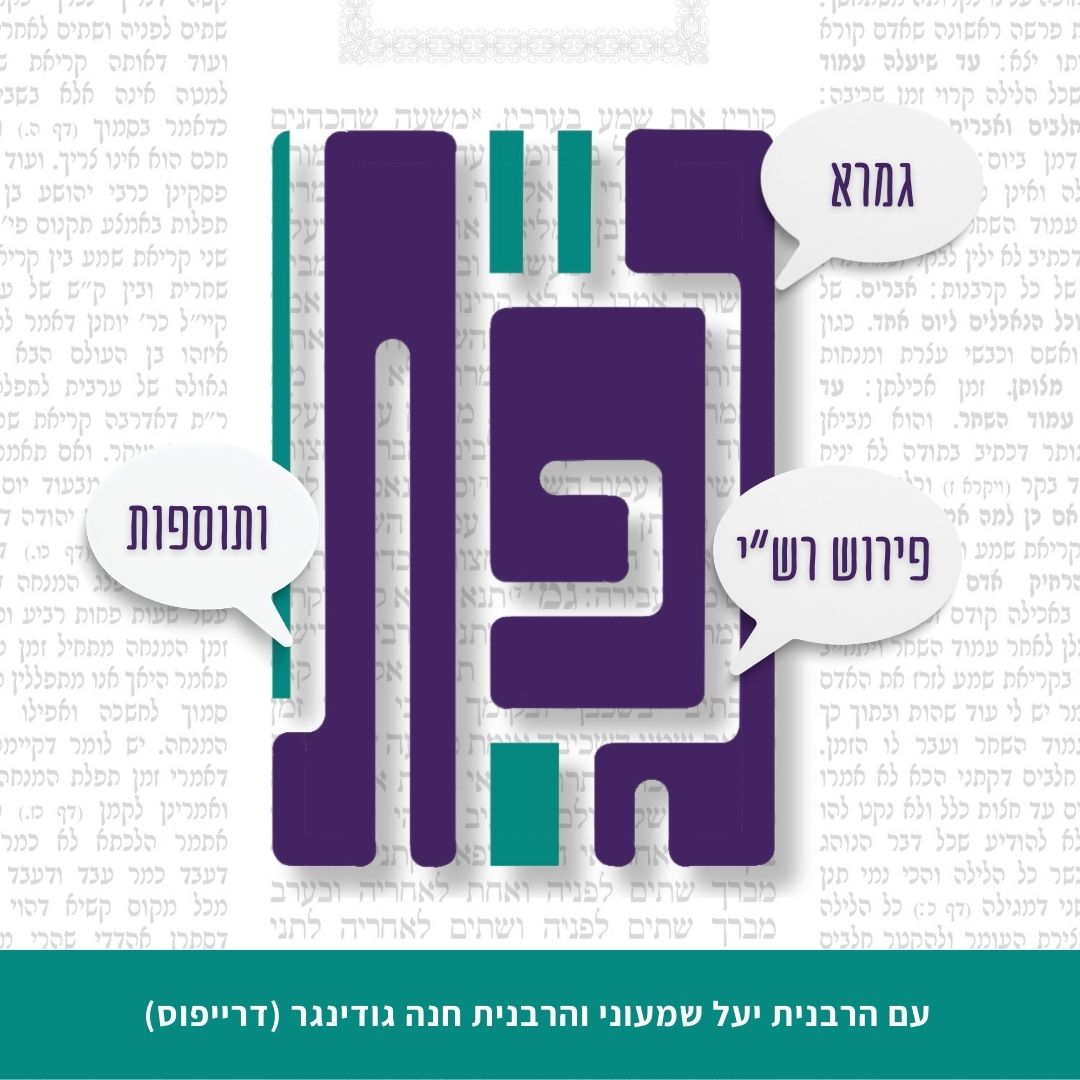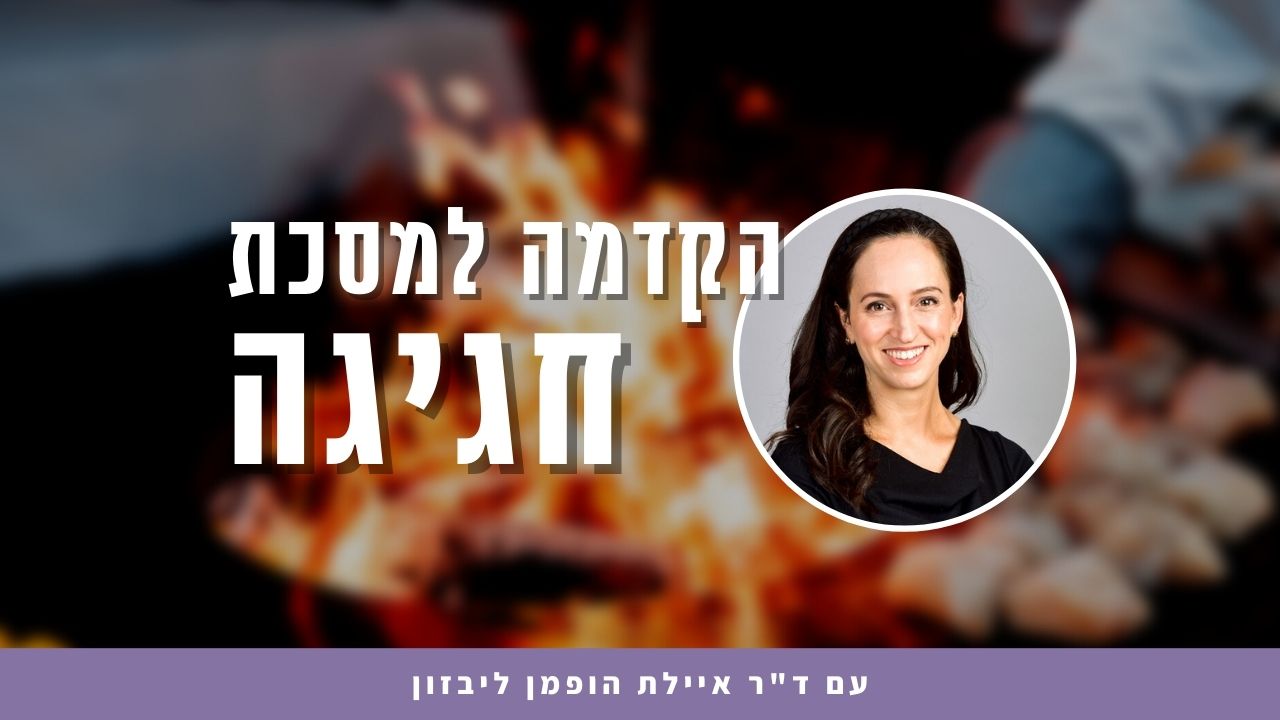פסחים קד
וְהָא מָר לָא תְּלָתָא אָמַר וְלָא שְׁבַע אָמַר! אֲמַר לֵיהּ: אִיבְרָא ״בֵּין יוֹם הַשְּׁבִיעִי לְשֵׁשֶׁת יְמֵי הַמַּעֲשֶׂה״, מֵעֵין חֲתִימָה הִיא, וְאָמַר רַב יְהוּדָה אָמַר שְׁמוּאֵל: הַמַּבְדִּיל צָרִיךְ שֶׁיֹּאמַר מֵעֵין חֲתִימָה סָמוּךְ לַחֲתִימָתוֹ. וּפוּמְבְּדִיתָאֵי אָמְרִי מֵעֵין פְּתִיחָתָן סָמוּךְ לַחֲתִימָתָן.
But the Master did not say three distinctions, nor did he say seven, as he actually mentioned four distinctions. He said to him: In truth, that is inaccurate, as the distinction between the seventh day and the six days of work is not considered a separate statement of distinction. Rather, this distinction is mentioned because it is similar to the conclusion of the blessing, and Rav Yehuda said that Shmuel said: One who recites havdala must say an expression that is similar to the conclusion near the conclusion of the blessing, to emphasize the connection between the blessing and its conclusion. And the scholars of Pumbedita say that one must say a phrase similar to the beginnings of blessings near their conclusions.
מַאי בֵּינַיְיהוּ? אִיכָּא בֵּינַיְיהוּ יוֹם טוֹב שֶׁחָל לִהְיוֹת אַחַר הַשַּׁבָּת, דְּחָתְמִינַן ״בֵּין קוֹדֶשׁ לְקוֹדֶשׁ״,
With regard to the previously cited dispute, the Gemara asks: What is the practical difference between them? Since the beginning and end of a blessing generally address the same topic, what is the difference between these two opinions? The Gemara responds: The practical difference between them is in the case of a Festival that occurs after Shabbat, as one concludes this havdala with the phrase: Who separates between sacred and sacred.
מַאן דְּאָמַר מֵעֵין פְּתִיחָתָן סָמוּךְ לַחֲתִימָתָן, לָא בָּעֵי לְמֵימַר ״בֵּין קְדוּשַּׁת שַׁבָּת לִקְדוּשַּׁת יוֹם טוֹב הִבְדַּלְתָּ״. וּמַאן דְּאָמַר מֵעֵין חֲתִימָתָן סָמוּךְ לַחֲתִימָתָן, בָּעֵי לְמֵימַר ״בֵּין קְדוּשַּׁת שַׁבָּת לִקְדוּשַּׁת יוֹם טוֹב הִבְדַּלְתָּ״.
The one who said that one must mention an expression similar to the beginnings of blessings near their conclusions would say that one is not required to say: Between the sanctity of Shabbat and the sanctity of the Festival You have distinguished, before concluding the blessing, as the beginning of the blessing refers simply to the sacred and the profane. And according to the one who said that one must say a phrase similar to the conclusions of blessings near their conclusions, one is required to say: Between the sanctity of Shabbat and the sanctity of the Festival You have distinguished.
גּוּפָא. אָמַר רַבִּי אֶלְעָזָר אָמַר רַבִּי אוֹשַׁעְיָא: הַפּוֹחֵת — לֹא יִפְחוֹת מִשָּׁלֹשׁ, וְהַמּוֹסִיף — לֹא יוֹסִיף עַל שֶׁבַע.
The Gemara returns to the aforementioned matter itself. Rabbi Elazar said that Rabbi Oshaya said: One who decreases the number of distinctions mentioned in havdala should not decrease their number to less than three, and one who increases their number should not increase them to more than seven.
מֵיתִיבִי: אוֹמֵר הַבְדָּלוֹת בְּמוֹצָאֵי שַׁבָּתוֹת וּבְמוֹצָאֵי יָמִים טוֹבִים וּבְמוֹצָאֵי יוֹם הַכִּפּוּרִים, וּבְמוֹצָאֵי שַׁבָּת לְיוֹם טוֹב וּבְמוֹצָאֵי יוֹם טוֹב לְחוּלּוֹ שֶׁל מוֹעֵד, אֲבָל לֹא בְּמוֹצָאֵי יוֹם טוֹב לְשַׁבָּת. הָרָגִיל — אוֹמֵר הַרְבֵּה, וְשֶׁאֵינוֹ רָגִיל — אוֹמֵר אַחַת.
The Gemara raises an objection from the Tosefta: One says statements of distinctions at the conclusion of Shabbat, and at the conclusion of Festivals, and at the conclusion of Yom Kippur, and at the conclusion of Shabbat that leads into a Festival, and at the conclusion of a Festival that leads into the intermediate days of a Festival. However, one does not mention distinctions at the conclusion of a Festival that leads into Shabbat, as the sanctity of Shabbat is greater than that of a Festival. One who is accustomed to reciting distinctions may recite many distinctions, and one who is not accustomed to doing so recites only one distinction. This ruling implies that there is no absolute requirement to mention more than one distinction.
תַּנָּאֵי הִיא, דְּאָמַר רַבִּי יוֹחָנָן: בְּנָן שֶׁל קְדוֹשִׁים אוֹמֵר אַחַת, וְנָהֲגוּ הָעָם לוֹמַר שָׁלֹשׁ. מַאן נִיהוּ ״בְּנָן שֶׁל קְדוֹשִׁים״? רַבִּי מְנַחֵם בַּר סִימַאי. וְאַמַּאי קָרוּ לֵיהּ ״בְּנָן שֶׁל קְדוֹשִׁים״? דְּלָא אִיסְתַּכַּל בְּצוּרְתָּא דְזוּזָא. שְׁלַח לֵיהּ רַב שְׁמוּאֵל בַּר אִידִי: חֲנַנְיָא אָחִי אוֹמֵר אַחַת. וְלֵית הִלְכְתָא כְּווֹתֵיהּ.
The Gemara answers: It is a dispute between tanna’im, as Rabbi Yoḥanan said: The son of sacred ones recites only one distinction, but the people were accustomed to recite three distinctions. The Gemara asks: Who is this person called the son of sacred ones? The Gemara answers: Rabbi Menaḥem bar Simai. And why did they call him the son of sacred ones? Because he would not look at the forms on coins, which were occasionally idolatrous symbols or some other prohibited image. The Gemara relates that Rav Shmuel bar Idi sent Rabbi Menaḥem bar Simai the following message: My brother Ḥananya says that one should mention only one distinction. However, the Gemara concludes: And the halakha is not in accordance with that opinion.
אָמַר רַבִּי יְהוֹשֻׁעַ בֶּן לֵוִי: הַמַּבְדִּיל צָרִיךְ שֶׁיֹּאמַר מֵעֵין הַבְדָּלוֹת הָאֲמוּרוֹת בַּתּוֹרָה. מֵיתִיבִי: סֵדֶר הַבְדָּלוֹת הֵיאַךְ? אוֹמֵר: ״הַמַּבְדִּיל בֵּין קוֹדֶשׁ לְחוֹל, בֵּין אוֹר לְחוֹשֶׁךְ, בֵּין יִשְׂרָאֵל לָעַמִּים, וּבֵין יוֹם הַשְּׁבִיעִי לְשֵׁשֶׁת יְמֵי הַמַּעֲשֶׂה, בֵּין טָמֵא לְטָהוֹר, בֵּין הַיָּם לֶחָרָבָה, בֵּין מַיִם הָעֶלְיוֹנִים לְמַיִם הַתַּחְתּוֹנִים, בֵּין כֹּהֲנִים לִלְוִיִּם וְיִשְׂרְאֵלִים״.
Rabbi Yehoshua ben Levi said: One who recites havdala must say distinctions similar to the distinctions stated explicitly in the Torah. One should not add other distinctions. The Gemara raises an objection from a baraita: How should one say the order of the distinctions in havdala? One recites: Who distinguishes between sacred and profane: Between light and darkness; between Israel and the nations; and between the seventh day and the six days of work; between the ritually impure and the ritually pure; between the sea and the dry land; between the upper waters above the firmament and the lower waters below the firmament; and between priests, Levites, and Israelites. This is an extended version of havdala, which includes references to seven distinctions.
וְחוֹתֵם בְּ״סֵדֶר בְּרֵאשִׁית״. וַאֲחֵרִים אוֹמְרִים: בְּ״יוֹצֵר בְּרֵאשִׁית״. רַבִּי יוֹסֵי בְּרַבִּי יְהוּדָה אוֹמֵר: חוֹתֵם ״מְקַדֵּשׁ יִשְׂרָאֵל״. וְאִם אִיתָא, הָא ״בֵּין הַיָּם לֶחָרָבָה״ לָא כְּתִיבָא בֵּיהּ ״הַבְדָּלָה״! סְמִי מִכָּאן ״בֵּין הַיָּם לֶחָרָבָה״.
The baraita continues: And one concludes the blessing with the order of Creation: Blessed is He Who arranges the order of Creation, or: Who orders Creation. And others say that one concludes with: Who fashions Creation. Rabbi Yosei, son of Rabbi Yehuda, says that one concludes with the phrase: Who sanctifies Israel. The Gemara explains its objection: And if what Rabbi Yehoshua ben Levi said is so, the distinction between the sea and the dry land should not be mentioned, as the term distinction is not written with regard to this issue. The Gemara answers: Remove from here the distinction between the sea and the dry land.
אִי הָכִי ״בֵּין יוֹם הַשְּׁבִיעִי לְשֵׁשֶׁת יְמֵי הַמַּעֲשֶׂה״ נָמֵי? מֵעֵין חֲתִימָה הוּא, בְּצַר חֲדָא וְלֵיכָּא שֶׁבַע!
The Gemara asks: If so, the distinction between the seventh day and the six days of work should also not be counted in the tally of the distinctions, as it is mentioned only to repeat something similar to the conclusion. Consequently, this text of havdala lacks one more distinction, and this means that there are not seven distinctions in total.
אָמְרִי, כֹּהֲנִים לְוִיִּם וְיִשְׂרְאֵלִים תְּרֵי מִילֵּי נִינְהוּ. בֵּין לְוִיִּם לְיִשְׂרְאֵלִים, דִּכְתִיב: ״בָּעֵת הַהִיא הִבְדִּיל ה׳ אֶת שֵׁבֶט הַלֵּוִי״. בֵּין הַכֹּהֲנִים לַלְוִיִּם, דִּכְתִיב: ״בְּנֵי עַמְרָם אַהֲרֹן וּמֹשֶׁה וַיִּבָּדֵל אַהֲרֹן לְהַקְדִּישׁוֹ קֹדֶשׁ קָדָשִׁים״.
They say in answer to this question: The distinction between priests, Levites, and Israelites is two matters, i.e., it counts as two separate distinctions. One distinction is between Levites and Israelites, as it is written: “At that time the Lord separated the tribe of Levi to bear the Ark of the covenant of the Lord” (Deuteronomy 10:8). A further distinction is that between the priests and the Levites, as it is written: “The sons of Amram: Aaron and Moses; and Aaron was separated, that he should be sanctified as most holy, he and his sons forever” (I Chronicles 23:13).
מִחְתָּם מַאי חָתֵים? רַב אָמַר: ״מְקַדֵּשׁ יִשְׂרָאֵל״, וּשְׁמוּאֵל אָמַר: ״הַמַּבְדִּיל בֵּין קוֹדֶשׁ לְחוֹל״. לָיֵיט עֲלַהּ אַבָּיֵי וְאִיתֵּימָא רַב יוֹסֵף אַהָא דְּרַב.
The Gemara asks: What formula should be used to conclude the blessing of havdala? Rav said the blessing should conclude with the phrase: Who sanctifies Israel. And Shmuel said the concluding phrase is: Who distinguishes between sacred and profane. The Gemara adds that Abaye, and some say it was Rav Yosef, cursed it, i.e., he would become angry at one who concluded the blessing in accordance with that opinion of Rav.
תָּנָא מִשְּׁמֵיהּ דְּרַבִּי יְהוֹשֻׁעַ בֶּן חֲנַנְיָא: כׇּל הַחוֹתֵם ״מְקַדֵּשׁ יִשְׂרָאֵל וְהַמַּבְדִּיל בֵּין קוֹדֶשׁ לְחוֹל״ מַאֲרִיכִין לוֹ יָמָיו וּשְׁנוֹתָיו.
It was taught in the name of Rabbi Yehoshua ben Ḥananya: Anyone who concludes the havdala blessing with the combined formula: Who sanctifies Israel and distinguishes between sacred and profane, God will lengthen his days and years.
וְלֵית הִלְכְתָא כְּווֹתֵיהּ.
However, the Gemara states: And the halakha is not in accordance with that opinion. Instead, the halakha is in accordance with the opinion of Shmuel.
עוּלָּא אִיקְּלַע לְפוּמְבְּדִיתָא, אֲמַר לֵיהּ רַב יְהוּדָה לְרַב יִצְחָק בְּרֵיהּ: זִיל אַמְטִי לֵיהּ כַּלְכַּלָּה דְפֵירֵי, וַחֲזִי הֵיכִי אַבְדֵּיל. לָא אֲזַל, שַׁדַּר לֵיהּ לְאַבָּיֵי. כִּי אֲתָא אַבָּיֵי, אֲמַר לֵיהּ: הֵיכִי אָמַר? אֲמַר לֵיהּ: ״בָּרוּךְ הַמַּבְדִּיל בֵּין קוֹדֶשׁ לְחוֹל״ אָמַר, וְתוּ לָא.
The Gemara relates: Ulla happened to come to Pumbedita. Rav Yehuda said to his son, Rav Yitzḥak: Go and bring him a basket of fruit as a gift, and while you are there, observe how he recites havdala. Rav Yitzḥak himself did not go. In his place, he sent to him Abaye, who was a young student at the time. When Abaye came back, Rav Yitzḥak said to him: How did Ulla recite the blessing of havdala? Abaye said to him that Ulla said: Blessed is He Who distinguishes between sacred and profane, but he did not say anything further.
אֲתָא לְקַמֵּיהּ דַּאֲבוּהּ, אֲמַר לֵיהּ: הֵיכִי אָמַר? אֲמַר לֵיהּ: אֲנָא לָא אֲזַלִי, אֲנָא שַׁדְּרִיתֵיהּ לְאַבָּיֵי, וַאֲמַר לִי ״הַמַּבְדִּיל בֵּין קוֹדֶשׁ לְחוֹל״. אֲמַר לֵיהּ: רַבְרְבָנוּתֵיהּ דְּמָר, וּסְרָרוּתֵיהּ דְּמָר, גְּרַמָא לֵיהּ לְמָר דְּלָא תֵּימָא שְׁמַעְתֵּיהּ מִפּוּמֵּיהּ.
Rav Yitzḥak came before his father, Rav Yehuda, who said to him: How did Ulla recite havdala? He said to him: I myself did not go. Instead, I sent Abaye, who said to me that Ulla recited: Who distinguishes between sacred and profane. Rav Yehuda grew angry and said to him: The Master’s haughtiness and the Master’s pride caused the Master to act in a way that ensured that the halakha will not be said in his name. In other words, had you gone yourself, this halakha would have been attributed to you, but due to your haughtiness and pride, it will be transmitted in the name of Abaye.
מֵיתִיבִי: כׇּל הַבְּרָכוֹת כּוּלָּן פּוֹתֵחַ בְּבָרוּךְ וְחוֹתֵם בָּהֶן בְּבָרוּךְ, חוּץ מִבִּרְכַּת מִצְוֹת וּבִרְכַּת הַפֵּירוֹת וּבְרָכָה הַסְּמוּכָה לַחֲבֶירְתָּהּ וּבְרָכָה אַחֲרוֹנָה שֶׁבִּקְרִיַּת שְׁמַע,
The Gemara raises an objection to Ulla’s practice from a baraita: With regard to all blessings, one begins their recitation with: Blessed, and concludes reciting them with: Blessed, except for blessings over mitzvot, blessings over fruit, a blessing that is juxtaposed to another blessing in the order of prayer, e.g., during the Amida prayer, and the final blessing after Shema.
שֶׁיֵּשׁ מֵהֶן פּוֹתֵחַ (בָּהֶן) בְּבָרוּךְ וְאֵין חוֹתֵם בְּבָרוּךְ, וְיֵשׁ מֵהֶן שֶׁחוֹתֵם בְּבָרוּךְ וְאֵין פּוֹתֵחַ בְּבָרוּךְ. וְ״הַטּוֹב וְהַמֵּטִיב״ פּוֹתֵחַ בְּבָרוּךְ וְאֵינוֹ חוֹתֵם בְּבָרוּךְ.
The baraita elaborates: These blessings are different, as some of them begin with: Blessed, and do not conclude with: Blessed, e.g., blessings over mitzvot and before eating, and some of them conclude with: Blessed, and do not begin with: Blessed, such as a blessing that is juxtaposed to another blessing. And the blessing: He Who is good and does good, is exceptional, as it is a blessing that is juxtaposed to another blessing, and yet it begins with: Blessed, and does not conclude with: Blessed.


